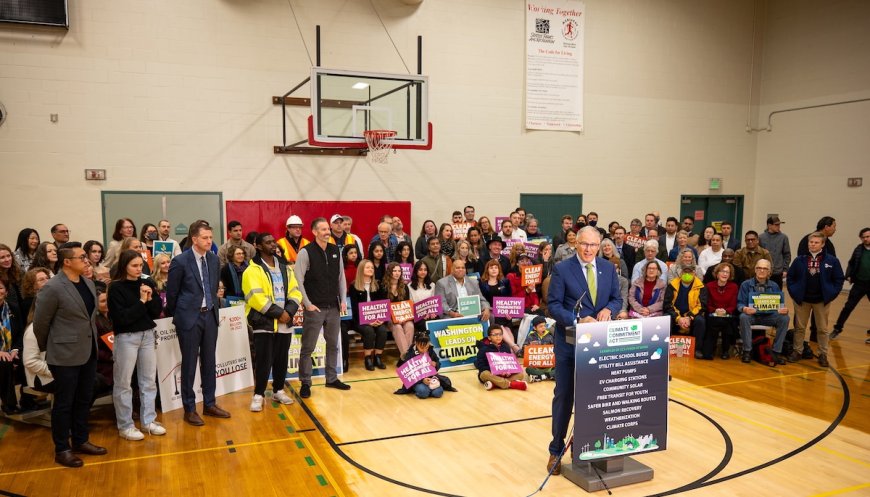Washington State Voters Uphold Climate Commitment Act
In the election held November 5, voters in Washington state upheld one of the biggest climate laws in the U.S. against challenges made by Republicans. Voters decided against a conservative repeal effort for the Climate Commitment Act, which was first signed into law by Gov. Jay Inslee in 2021. The law set up a state […] The post Washington State Voters Uphold Climate Commitment Act appeared first on EcoWatch.

In the election held November 5, voters in Washington state upheld one of the biggest climate laws in the U.S. against challenges made by Republicans.
Voters decided against a conservative repeal effort for the Climate Commitment Act, which was first signed into law by Gov. Jay Inslee in 2021. The law set up a state cap-and-invest program that limits greenhouse gas emissions and raises money for climate change resiliency and environmental restoration.
The program works by setting a limit on emissions for the state, and businesses have to buy allowances to cover their emissions. As the state’s Department of Ecology explained, the program is a sealed-bid auction where businesses submit their bids, but the highest bidder doesn’t necessarily win all the allowances.
“Instead, participants can choose to submit a single bid for all their desired allowances, or a series of bids for groups of allowances at different prices,” the department explained. “The bids are then automatically sorted in order of bid price, starting with the highest bid, and allocated to each bidder in that order. Once all the allowances are accounted for, the lowest bid that successfully won allowances is the price that all bidders pay.”
From there, anyone who bid lower than the lowest successful bid has to buy allowances from other participants. As The Associated Press reported, each allowance accounts for 1 metric ton of emissions.
The cap, or number of available allowances, is designed to decrease over time in order to help Washington continue to decrease emissions and reach its climate goals for 2030 (with emissions cut to 45% of 1990 levels), 2040 (70%) and 2050 (95%).
As the Washington State Standard reported, the law helped raise $1.82 billion in 2023 alone. The first auction in 2024 raised $136 million, and another auction is set for June 2025.
However, this year, a ballot initiative was added in Washington to repeal the act, with those who supported repealing the law arguing that it was creating a “hidden gas tax” and raising costs for gas and energy without providing meaningful environmental contributions. As The Associated Press reported, the state’s highest average gas price per gallon was $5.54 in February 2023, before the auctions began.
Those against the ballot initiative argued that fuel and energy costs could still remain high even if the law was repealed while also depleting a source of revenue for climate resilience and environmental protection and restoration efforts.
According to The Seattle Times, the repeal effort failed significantly, with 61.7% voting no on repealing the Climate Commitment Act at the time of writing.
Washington is the second state to enact such a law, following California. In Canada, Québec also has a similar program, and all three governments are planning to discuss linking their cap-and-invest initiatives. California and Québec linked their programs in 2014.
The vote to retain Washington’s Climate Commitment Act puts a spotlight on local and state actions to curb the worst effects of climate change and protect the environment in the face of a second presidency under Donald Trump, who was officially called as the winner on November 6.

“Trump’s victory presents a real obstacle in the global fight against climate change. Under President Trump’s leadership, the United States will almost certainly step back from global and domestic efforts to reduce greenhouse gas emissions, increasing fossil fuel production,” Alice Hill, senior fellow at the Council on Foreign Relations and member of the Climate Crisis Advisory Group, said in a statement.
“However, this outcome does not spell the be-all and end-all for climate action in the United States,” Hill added. “The power of state-level action should not be undermined, with significant progress made at sub-national level in some states. Local political and regulatory intervention will be critical in the fight for a healthier planet — with or without support from the Trump administration.”
The post Washington State Voters Uphold Climate Commitment Act appeared first on EcoWatch.
What's Your Reaction?








































